New event series: The Future of Innovation
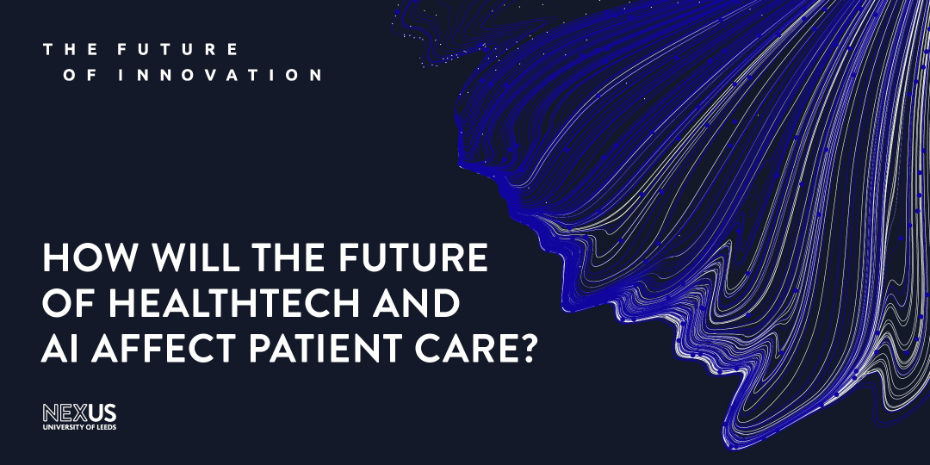
We kicked off our brand new Future of Innovation series last week, with an online debate, asking “How will the future of HealthTech and AI affect patient care?”
The event formed part of the West Yorkshire Innovation Festival – a week of celebrations raising the profile of innovation across the Leeds City Region – with the debate being led by Professor Andy Pardoe, host of the AI Future Show.
The session started with an introduction from Nexus Director, Dr Martin Stow, who commented “We’re delighted to host this event – the first of our Future of Innovation Series – which will bring together the brightest minds and leading experts from academia, business, government and society to explore and dissect the topical issues within innovation. I believe that prioritising innovation today is key to unlocking post-COVID or post-crisis growth for the region and also the country as a whole.”
Our prestigious panellists – Professor Alex Frangi, Director of the Centre for Responsive HealthTech Innovation at the University of Leeds; Nikhil Sehgal, Co-founder and CEO of telehealth wellness specialists Vastmindz – a Nexus member business; Gabriela Arriagada Bruneau, a postgraduate researcher in AI and Data Ethics at the University of Leeds; David Brettle, Chief Scientific Officer at Leeds Teaching Hospitals NHS Trust and Dom Cushnan, Head of AI Imaging at NHSX – provided some great insights and thought-provoking discussion points.
We’ve captured just a taster of those here, but you can access the full session here.
One of the key themes of the debate was the speed with which new technology has been adopted during the pandemic.
Professor Alex Frangi commented “What the pandemic has shown is that technology was not the problem. A lot of the transformations, such as GP consultations from home, were seen as something for today, not for the future. There would have been problems if we had not introduced the technology.”
Nikhil Sehgal added “The market has been much more receptive during the pandemic – particularly around patients being cared for from their own home. There is huge potential to make really informed decisions about patient care pathways and improve patient outcomes.”
Debating the functional versus ethical goals behind healthtech in patient care, Gabriela Arriagada Bruneau described the need to contextualise data and added “We need to ask – how can technology make care kinder, more gentle or more human? We need to adapt it not as an asset, but part of our evolution as a society.”
David Brettle described the vital importance of freeing-up NHS staff to focus on attending those who needed care the most and improving patient experience. He added “We need to start from what are the desired patient outcomes, then look at how AI can help to achieve those.”
Dom Cushman said the role of practitioners was crucial and added “AI should help further advance clinical decision support processes. The use and role of digital will be even more evident as we start bringing back services.”
Asked for their thoughts for the future, the panel cited Leeds as a key centre for the development of healthtech in patient care and spoke about the value of collaboration.
Professor Alex Frangi concluded “Leeds is a great place to make digital transformation happen. We have a unique partnership here between the Leeds Teaching Hospitals NHS Trust and the University of Leeds. Co-creating technology is critical – user needs should not be an afterthought. We need to understand public perceptions on data-sharing and involve them – ask what data they are comfortable to share and what applications they want from the use of that data. Hospitals, universities and citizens need to work together to prioritise what we do.”
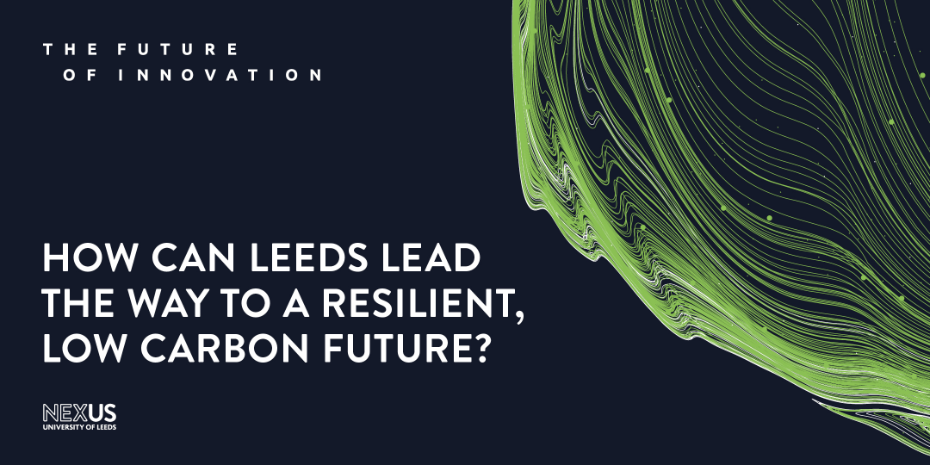
On Monday April 19, the Nexus Future of Innovation Series will continue with “How can Leeds lead the way to a resilient, low carbon future?”– as part of the University of Leeds’ Connecting Voices for Climate Action week of activity in preparation for the United Nations (UN) climate change conference in Glasgow in November.
The session will also showcase the new Leeds-based UK Centre for Greening Finance and Investment. Find out more and register.
Latest news

Leeds-based Ligentia secures major European investment
Global supply chain management provider, Ligentia, has secured major investment from European private equity investors Equistone to support its continued international expansion.
Read article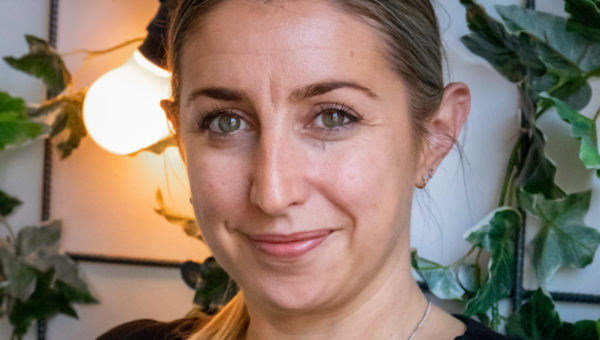
The view from here – Anna Sutton, The Data Shed
We caught up with Co-Founder and CEO of data consultancy The Data Shed who told us there was tentative positivity from the tech sector for 2021, despite the ever-changing landscape.
Read article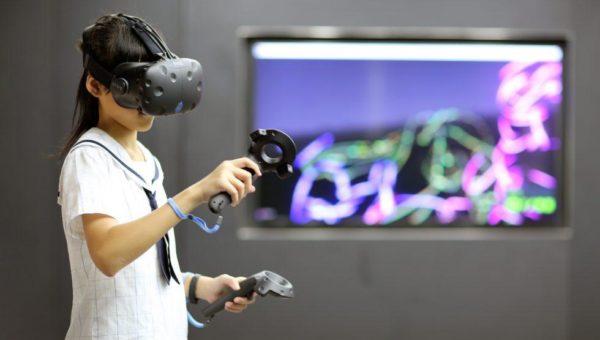
Nexus welcomes teaching experts from Hong Kong in bid to step up STEM across the UK
Science and technology teaching experts from Hong Kong have chosen Nexus, to launch their bid to step up STEM (Science, Technology, Engineering and Mathematics) teaching in secondary schools across the UK.
Read article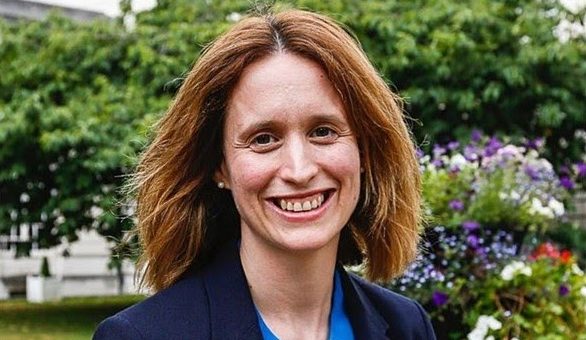
The view from here – Eve Roodhouse, Leeds City Council
We caught up with Eve, Chief Officer, Culture and Economy at Leeds City Council, about the challenges and opportunities ahead for our region’s economy.
Read article